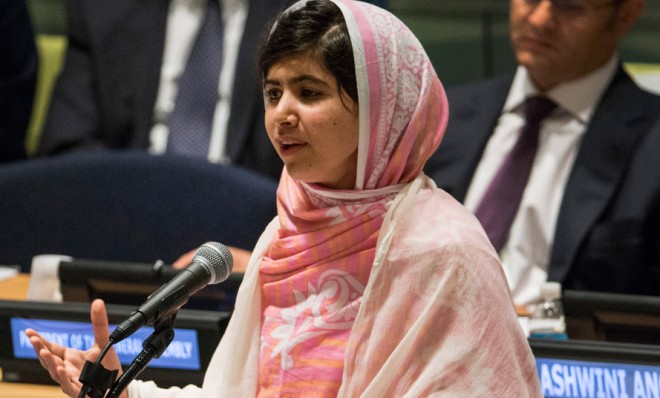WATCH: Malala Yousafzai's inspirational speech to the U.N.
The 16-year-old schoolgirl who survived a Taliban hit job gives an impassioned speech in support of education equality


A free daily email with the biggest news stories of the day – and the best features from TheWeek.com
You are now subscribed
Your newsletter sign-up was successful
On Friday, Pakistani schoolgirl and education activist Malala Yousafzai said in an address to the United Nations that the Taliban had "failed" to deter her from pushing for education equality.
"The terrorists thought that they would change our aims and stop our ambitions but nothing changed in my life except this: Weakness, fear and hopelessness died," she said. "Strength, power and courage was born."
A Taliban attacker shot Yousafzai in the head last October for, the group claimed, promoting "Western thinking," like the belief that girls should be allowed to attend school. Yousafzai only recovered after extensive surgery, and has since became an international symbol for education equality, with the U.N. naming Friday, her 16th birthday, Malala Day.
The Week
Escape your echo chamber. Get the facts behind the news, plus analysis from multiple perspectives.

Sign up for The Week's Free Newsletters
From our morning news briefing to a weekly Good News Newsletter, get the best of The Week delivered directly to your inbox.
From our morning news briefing to a weekly Good News Newsletter, get the best of The Week delivered directly to your inbox.
"I speak not for myself, but for all girls and boys," she said. "I raise up my voice, not so that I can shout, but so that those without a voice can be heard. Those who have fought for their rights — their right to live in peace, their right to be treated with dignity, their right to equality of opportunity, their right to be educated."
The speech was also fraught with political symbolism: Malala wore a shawl that previously belonged to former Prime Minister Benazir Bhutto, a champion for secularism in Pakistan who was assassinated in 2007, most likely by one of the country's Islamic extremist groups.
A free daily email with the biggest news stories of the day – and the best features from TheWeek.com
Jon Terbush is an associate editor at TheWeek.com covering politics, sports, and other things he finds interesting. He has previously written for Talking Points Memo, Raw Story, and Business Insider.
